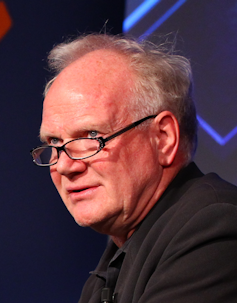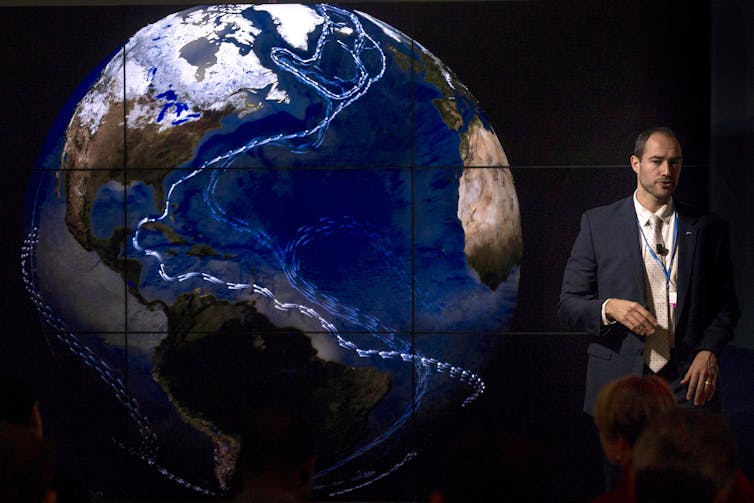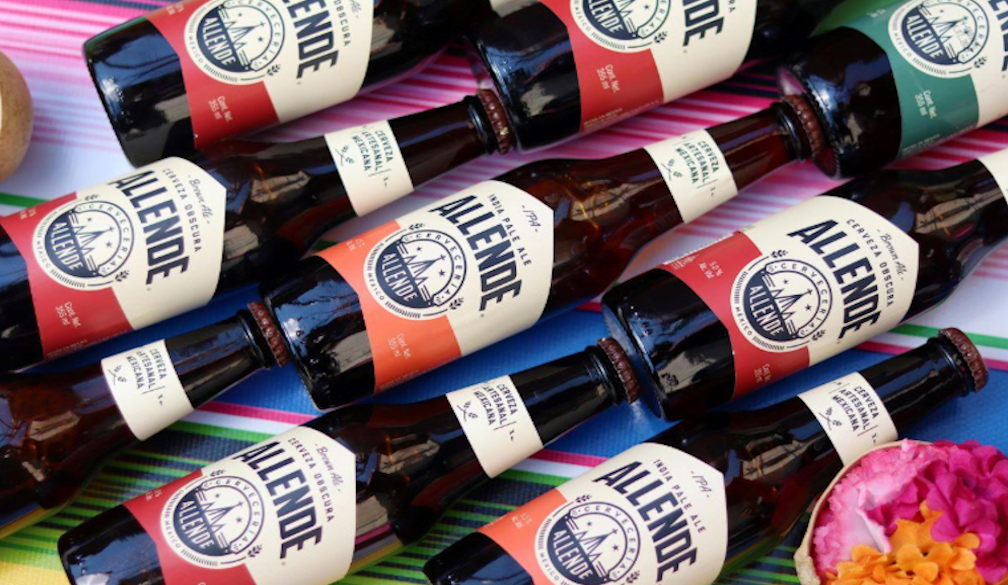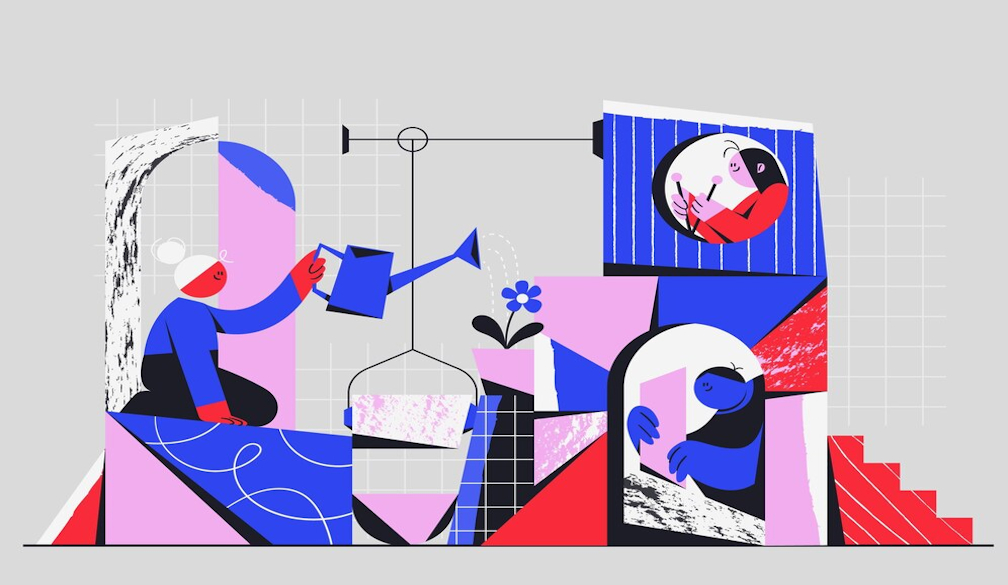Breaking the shackles of the national mindset in a polarised world
- Written by Sabine Selchow, Research Fellow, ARC Laureate Program in International History, University of Sydney
This article is part of the Revolutions and Counter Revolutions series, curated by Democracy Futures as a joint global initiative between the Sydney Democracy Network and The Conversation. The project aims to stimulate fresh thinking about the many challenges facing democracies in the 21st century.
Politics today is characterised by polarisation. To be able to choose between two clearly demarcated opposing positions has come to be perceived as truly “having a choice”. Reflection and compromise are seen as admitting weakness, defeat, and even a betrayal of one’s position.
From Donald Trump to Brexit, this polarised discourse is built on the distinction between “the national” and a threat from the outside.
What threatens “the nation-state [as] the true foundation for happiness and harmony” in Trump’s US is “the global”. It is personified in the “global elite” and “foreign capitals and global activists that have long sought to gain wealth at our country’s expense”.
In the case of Brexit, it is the European Union and, more generally, “the powerful” against whom “the rest” had to “assert their rights”.
What’s being invoked here is the idea that societies equal nation-states, neat containers that can be closed and so hold the possibility of retreat to “the inside”.
A lot of energy is invested in challenging this discourse and the political imagination that underpins it. Some criticism is on practical grounds (like showing why Trump’s “great border wall” “won’t work”) as well as normative grounds (such as demonstrating that nationalism is “dangerous”, “leads to internal fragmentation” and might foster “immoral, unlawful, or destructive” behaviour).
More generally, under headings such as “How neo-nationalism went global” and “Trump and Brexit won’t kill globalisation – we’re too far in”, we find much discussion of what the restyling of politics means for the world, the international order and the global market.
 We struggle to conceive of our rights and interests as a society outside the framework of the nation-state.
diamond geezer/flickr, CC BY-NC-ND
We struggle to conceive of our rights and interests as a society outside the framework of the nation-state.
diamond geezer/flickr, CC BY-NC-ND
And yet this critical engagement still does not adequately tackle what lies at the heart of our political imagination: the unquestioned presumption that societies are discrete units that exist in an international system and are under threat by “outside forces” such as globalisation or “Europeanisation”.
We have not properly dealt with the fact that this equation of society and the nation-state – and the dichotomy it represents between “the national” and some kind of “outside” – also runs through much of the criticism that aims to counter Trump et al’s rhetoric.
As is most obvious in debates about the potential “death of globalisation” or the “return of the nation-state”, even the critique of the current restyling of politics more often than not (inadvertently) reproduces this framing. We find ourselves producing (critical) knowledge from within the parameters of the very political imagination that we intend to understand, scrutinise and counter.
What is needed is a break with established, counterproductive parameters. This requires efforts to find a different, pre-analytic vision that enables us not just to see new things in the world but to see and explore a new world altogether.
Another way of seeing the world
Sociologist Ulrich Beck provides the theoretical ground for such a vision. Beck was probably best known for his widely cited 1986 book Risk Society (Risikogesellschaft).
“Risk society” is often understood to be a concept that draws a dark, pessimistic picture of a world of increasing risks, threats and dangers. Beck is taken to be a risk scholar or theorist of risk. Neither of these understandings is fully accurate.
 Ulrich Beck’s concern was that we live in a world different from the one in which we think.
International Students’ Committee/Wikimedia, CC BY-SA
Ulrich Beck’s concern was that we live in a world different from the one in which we think.
International Students’ Committee/Wikimedia, CC BY-SA
Beck’s use of the word risk in “risk society” is actually an attempt to deconstruct the idea of risk and question the usefulness of its application in sociopolitical contexts. The invented German word Risikogesellschaft, combining the words Risiko and Gesellschaft, is meant to signal that these two concepts are no longer adequate means by which to grasp social reality.
Beck’s wider social theory does not capture the decline of modern society but rather the ambivalence of today’s social reality.
Far from setting out to present a dark picture of the world, Beck was driven by optimism. He tried to escape the pessimism that he felt was shaping social theorisation by establishing the thesis that this pessimism is the flipside of the dogmatic use of established but inadequate concepts.
As Stephen Bronner put it, Beck’s main conviction was that:
We live in a world … different from the one in which we think.
This brings us to the pre-analytic vision that Beck provides. The notion that societies are neat and contained nation-states, together with the narrative of modernity and progress, is one of the most powerful convictions in politics and the academy.
When held by political actors, Beck calls it a “national perspective” (nationaler Blick). In regard to the academy, he speaks of “methodological nationalism”.
The “national reality” that follows from the “national perspective” and “methodological nationalism” is the reality in which we think, according to Beck, but not the one in which we live.
This view does not overlook or deny the relevance of the belief in “the national” or the reality of the power of nation-states. But it does set them into the context of an entirely different world by stepping out of the naturalised reality of the “national perspective” and “methodological nationalism”.
The ‘cosmopolitised’ alternative
This different world – the “cosmopolitised world” – is a social reality shaped by three aspects:
1) Cosmopolitisation. This term captures the enmeshment of lived realities, horizons of expectation and horizons of experience that takes place independently of national borders (again, without overlooking or denying the brutal reality of borders). This cosmopolitisation of societies is not a conscious and intended process triggered by ideals of “cosmopolitanism”, but a side effect of actions aimed at other ends.
A good example is Nigel Farage’s almost 20-year-long service in the European Parliament as part of his exclusionary, national political project. To be successful with an exclusionary anti-EU doctrine, a seat in the European Parliament is necessary. This, however, inadvertently fuels the reality of cosmopolitisation and, as such, makes it “irreversible”.
Ulrich Beck speaks on the topic How the European Project Can Be Saved.2) Global risk. This is the second aspect that shapes the cosmopolitised reality in which we live. The term global risk does not refer to risk as it is usually understood – that is, to the imagination of future calculable side effects (good or bad) of decisions/actions in the now. Rather, it refers to the potential consequences of distinct decisions.
These “industrial techno-economic decisions and considerations of utility” are grounded in modern institutions and principles, such as freedom, statehood, and market dependency. These have “peaceful origins in the centres of rationality and prosperity with the blessings of the guarantors of law and order”, as Beck puts it.
Crucially, they constitute the very success of modernisation, progress and advancement in scientific knowledge production – but, for instance, these achievements have led to the fact that humanity is faced with climate change.
Finally, the potential consequences of techno-industrial decisions, global risks, are to be seen as potentially producing non-knowledge (Nichtwissen) – that is, things that are unknowable.
Ulrich Beck talks about living in and coping with world risk society.Taking these points together, industrial, techno-economic decisions need to be thought of as potentially producing consequences that cannot be captured and calculated with the notion of risk as we know it. Therefore, such decisions cannot be grounded in a national container thinking.
Given the nature of global risks, the cosmopolitised reality entails a borderless necessity of co-operation (Kooperationszwang) and interrelated responsibility (Verantwortungszusammenhang).
In other words, it is a reality in which the “global other” is inevitably implicated in the decisions of other “global others”. This is so even if social actors are not aware of this or are caught up in the world of the “national perspective”/“methodological nationalism” – a world in which it seems perfectly possible to “externalise” undesired consequences to parts of the world beyond national borders.
 National borders are irrelevant to rising sea levels in a time of climate change, as shown here at the COP21 Conference.
Jose Rodriguez/EPA
National borders are irrelevant to rising sea levels in a time of climate change, as shown here at the COP21 Conference.
Jose Rodriguez/EPA
3) Inherent uncertainty. The third aspect that shapes the cosmopolitised reality follows from the above point. It results from the ambivalence between contemporary horizons of expectations and experiences on the one hand and modern principles and institutions on the other.
Beck captures this in his take on the theory of reflexive modernisation, where basic modern principles (freedom, statehood, market dependency etc) and institutions (family, state etc) are radicalised in the process of modernisation itself.
This occurs because they are confronted with the side effects of modernisation (climate change and nuclear disasters etc), which, as suggested above, are not the dark side of modernisation but the products of its very success; they are consequences of intended behaviour.
As such, modernisation itself undermines its own institutions and principles, because of the side effects they generate.
Two points follow from the above vision of the world.
First, institutions that are imagined and designed from within the world of the “national perspective” or “methodological nationalism”, including national environmental departments, are not just ill equipped for dealing with the actual (as opposed to potential) consequences, such as climate change, of past techno-economic decisions, but also produce global risks.
Beck calls them zombie institutions; they seem to be alive but are actually dead – and yet they have a profound impact on our lives and planet.
Second, “the national” is always already the product of cosmopolitisation. Recent moves, such as Brexit and Make America Great Again, need to be seen not only as “the defensive impulses of those who think in nation-state categories” in a cosmopolitised reality, but as the very product of cosmopolitisation.
At the same time, these moves are (inevitably and inadvertently) fuelling the reality of cosmopolitisation – be it through obsessive social-media engagements with issues, events and people around the world, or through serving in the European Parliament to achieve Brexit.
Let’s get uncomfortable
In a political environment shaped by polarisation and post-truth discourse, the question is not only what role there is for academic knowledge production, but what kind of academic knowledge is needed.
In a recent Conversation article, Colin Wight points to academia’s responsibility for the turn towards post-truth attitudes. He demands that academics “re-examine and reinvigorate the Enlightenment impulse” and “recover [their] commitment to objective truth” – understood “as something that exists but which no one possesses” – as the ground for claims to justice.
If the concept of objective truth is moved into the dustbin of history there can be no lies. And if there are no lies there can be no justice, no rights and no wrongs, the issue is not that we all make […] universal truth claims; it is that in embracing epistemological positions that tend towards relativism, we have denied ourselves a secure ground on which to defend them.
I would add that the academy also has an obligation to slow down, scrutinise and re-invent the pre-analytic visions on which analyses have been grounded “naturally” for so long and which have come to underlie and animate an explosive political reality.
Beck’s cosmopolitised vision is a promising starting point for such a reinvention. It not only challenges the either/or thinking that drives political imaginations today, but replaces the either/or with a “both/and” (“sowohl-als-auch”). That is, it provides a productive different starting point. It’s a pre-analytic vision with parameters that enable us to ask different questions.
Instead of spending energy asking if we are experiencing a “return of the nation-state” or where “the pendulum [that] swings between globalisation and the nation state” is located and, with that, reproducing an imagined world of oppositions, the task is to explore empirically the nature of the cosmopolitised national in particular and the cosmopolitised reality in general, with their distinct dynamics and actors.
 A sign of a cosmopolitised world?
Marco Bellucci/flickr, CC BY
A sign of a cosmopolitised world?
Marco Bellucci/flickr, CC BY
None of this is easy. The cosmopolitised world is an uncomfortable place in which to do research. It’s not just about seeing new things in the world from an established and secure vantage point, but rather setting out to explore a new world altogether – by starting somewhere different.
The new world is an uncomfortable place for scholars because it demands thinking beyond linearity. And, as Nina Degele observes, “serious social scientists do not like the idea of ‘both/and’ ”.
It’s uncomfortable because it requires us to invent – from within it – a completely new language to grasp it. It requires academic knowledge production that takes risks by being flexible, explorative, creative and, to some degree, provisional.
In his last “unfinished” book, Beck uses the concept “metamorphosis” to deal with this challenge. As he put it:
In the state of total change we try to think this change. This is difficult, hence, we cannot appear with full confidence.
I believe, in the face of fierce polarisation, academic knowledge production needs to get uncomfortable to open up new horizons for imagining and acting in the world.
Authors: Sabine Selchow, Research Fellow, ARC Laureate Program in International History, University of Sydney
Read more http://theconversation.com/breaking-the-shackles-of-the-national-mindset-in-a-polarised-world-90009



















